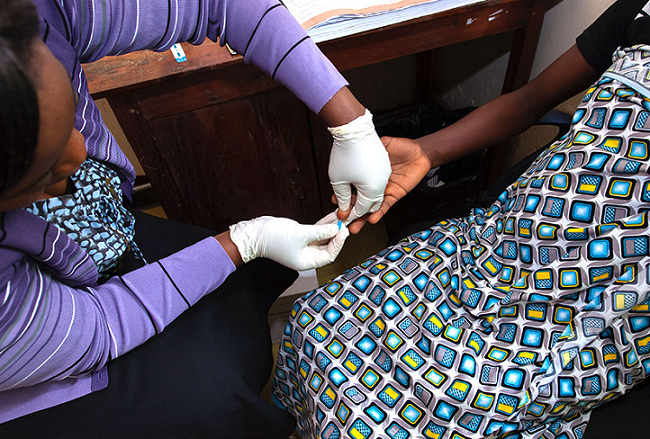
Volta Region works towards national HIV campaign target
The Volta Region has come on board with its own strategic plan to work towards the attainment of the objectives of Ghana’s HIV 90-90-90 campaign that aims at working to accelerate access to HIV testing and treatment.
Advertisement
The first 90 Fast-Track target, which is part of a broader UNAIDS Global Strategy, is intended to end AIDS by 2030, but this requires that countries set short-term targets for 2020 to allow for the tracking of progress towards achieving the global long-term goal.
These short-term targets are popularly called the “90-90-90 Fast Track Targets,” meaning that 90 per cent of all People Living with HIV (PLHIV) would know their status; 90 per cent of all people diagnosed with HIV infection would receive sustained Antiretroviral Therapy (ART), while 90 per cent of all people receiving antiretroviral therapy would have viral suppression.
One-year campaign
The Ghana AIDS Commission (GAC) is embarking on a one-year campaign to achieve the “First 90 Fast-Track” target to ensure that 90 per cent of all persons living with HIV know their HIV status.
By this campaign, every region is expected to formulate its own ideas and ways of ensuring that the campaign goes far to achieve its objectives and the GAC has initiated consultation meetings with key stakeholders to serve as a platform for exchange and dialogue for developing policy and institutional measures, provide better understanding on the status of the first 90 campaign and to discuss and identify funding opportunities and challenges associated with promoting HIV testing and counselling.
At the Volta Regional consultative meeting to engage stakeholders for an effective campaign, the Technical Coordinator for the Ghana AIDS Commission, Mrs Rita Afriyie, said it had become prudent for regions to be innovative and come up with strategic ways of meeting the target, explaining that the commission was no longer getting external support and, therefore, regions, including the Volta Region, had to be innovative and generate funds internally to support the campaign.
Developing ideas
The stakeholders drew plans for strategies and budget, as well as using the media to provide communication tools, the use of local celebrities such as musicians and beauty queens, and also crafting messages in the local dialects for easy understanding by the people.
Mrs Afriyie said the success of the campaign would mean that more people would be testing to know their status and persons who were positive would go for the ART.
Using a situation at Kwahu where over 90,000 people were tested during the Easter period as an example, Madam Afriyie said personnel should take advantage of such activities to get more people tested.
The commission, she added, would assist the regions where necessary, with the provision of testing materials for the campaign.
Regional HIV records
According to records, the HIV prevalence in the region stands at 2.2 per cent, against the national rate of 1.37 per cent.
The Volta Regional HIV and Tuberculosis Coordinator, Dr Anthony Ashinyo, in an interview with the Daily Graphic, said HIV was firmly established in the region but “a chunk of people do not know their status”.
The way forward
The way to move as a region is to intensify an earlier campaign dubbed ‘Know Your Status Campaign’ which falls in line with the Ghana AIDS Commission target for agenda 90-90-90.
The campaign started in 2007 but became dormant due to funding. It was very helpful as people were informed about the importance of knowing their status through public education at social activities such as church programmes, durbars and festivals.
Dr Ashinyo said one key reason why people failed to do the test was the spirituality and stigma attached to HIV issues, pointing out that it was time spirituality attached to HIV infection was erased from the minds of people and people encouraged to check their status because “HIV is no longer a death sentence.”
He appealed to corporate institutions and organisations to support the campaign with funding and further called on the media for assistance to remove the fear and stigma of knowing one’s status, stressing that “one cannot know his or her status without testing”.